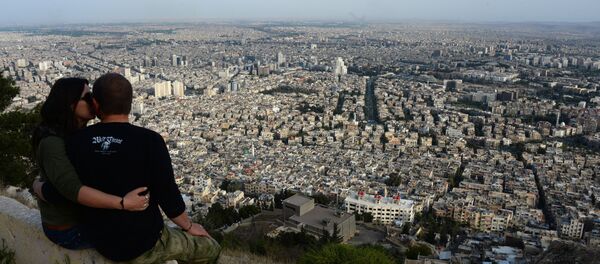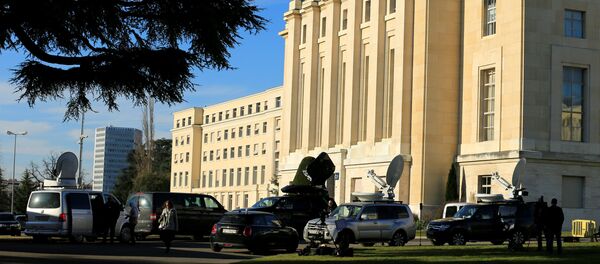DAMASCUS, April 21 (Sputnik) — Assad said the lack of stability and government control in certain parts of the country provides local authorities an "excuse for today" to advocate in favor of "self-control."
"When you have stability and the government taking control of the country, of course there's no excuse to deal with such a situation unless there's a constitution that allows a certain area to have its confederation or federation or any other way of governance," he said.
Assad said Damascus is under the impression that "the vast majority of Syrians never believe in self-governance or confederation or anything."
"It's better to wait to discuss the next constitution between the different Syrian shades of our spectrum," the Syrian leader stressed.
Syrian President Bashar Assad elaborated on the issue saying that the issue of removing the word "Arab" from the "Syrian Arab Republic" official title should be resolved through a referendum.
"If the Syrians don't believe in the word of 'Arab state,' what's the meaning of having this word?" Assad said. "I wouldn't say that this is right or wrong till the Syrians have their own say in a referendum."
The subject came up in recent months after Russia circulated a draft of the Syrian constitution with the word "Arab" removed from the republic's name to reflect its multiethnic makeup.
"It's still early to discuss that point, it's not a contention issue, I mean, nobody is discussing it now. A few people in Syria, mainly among the Kurds, mention this issue. It's not a big problem," Assad said.
Later, Sputnik obtained the full text of the Syrian constitution drafted by Russia.
The establishment of the new Syrian constitution is considered crucial for achievement of peace in the country.
Apart from self-governance, secularism is the most contentious issue between the Syrian government and opposition, some of whose factions favor a religious state, at international talks, Assad said.
"Most of the factions that apparently joined the negotiations in Astana and part of them in Geneva, they don't accept a secular state, they want it a religious state, Islamic state," Assad said.
He characterized the disagreement as possibly "the most important part" of negotiations over Syria's future constitution.
"Of course till this moment we haven't started direct negotiations, but we know through the mediators what they propose, and what we propose," Assad said.
The fifth round of the UN-mediated Geneva negotiations on Syrian reconciliation concluded on March 31 without a breakthrough.
Astana provides a separate platform for Syrian peace talks, with three rounds of negotiations since the beginning of the year.




